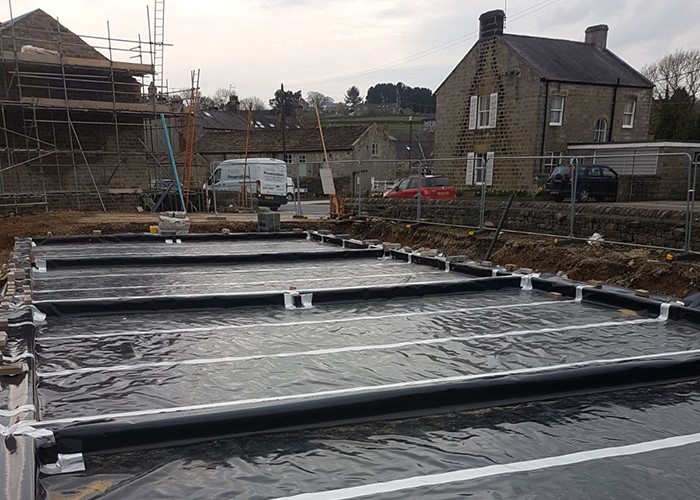
How To Test For Ground Gases?
When building below ground the requirement to protect structures against ground gas ingress falls under the British Standard is BS 8485:2015+A1:2019 – Code of practice for the design of protective measures for methane and carbon dioxide ground gases for new buildings. Methane and carbon dioxide is noted in BS 8485, with NHBC guidance also available. CIRIA c735:2014 also refers to VOCs and radon, with more detailed information on VOCs in CIRIA c748: 2014. There is also guidance for ground investigations in BS 8576: 2013 and many more.
The above highlights the complexities of gas protection beyond just recommending a gas membrane. There are many standards and regulations that need to be adhered to before taking into account third parties and environmental agencies.
Ground Gas Risk Assessment
A Ground Gas Risk assessment process is almost always a requirement from the local planning authority. These assessments are then undertaken by the developer or their contractor. Ground Gas Risk Assessments usually involve spot monitoring visits that can last up to 12 months and if methane is found at over 5% by volume they could last longer.
The aim of a Ground Gas Risk Assessment is to identify and quantify ground gas risk to specified receptors or buildings. Assessments monitor for the presence of both natural and anthropogenic gas sources.
Do I need a ground gas assessment?
If the site is considered at risk a Ground Gas Risk Assessment will be identified and recommended in Phase 1 Desk Study. A Ground Gas Risk Assessment is more likely to be required if the site is in close proximity to landfill sites (historical or current), heavy industrial historic land use, infilled ponds, lakes or water sources, as well as natural ones.
No matter the source of ground gas it can pose a very real threat to a development. Gases can migrate through subsoil and into buildings where it can accumulate and cause a health risk or potential explosion.
How APP Protect can help
When making provisions for gas mitigation it is vital that ground gas specialist advice is sought after. Also, as ground gas protection is often undertaken in conjunction with structural waterproofing it is important to contact structural waterproofing experts.
APP has been an expert in gas protection membranes and structural waterproofing since 1967. We have helped projects from design to realise their potential across Cambridgeshire with a solid reputation we’re proud of.
We’re Ready To Help You
Please get in touch with our friendly team today and we can get the ball rolling on your project sooner than you think.
